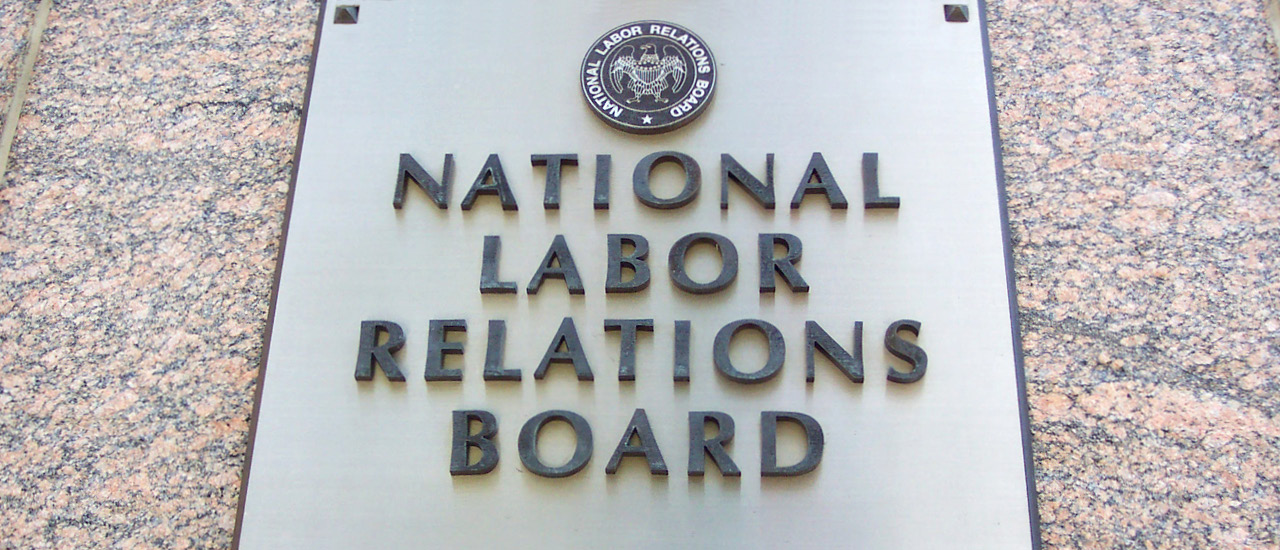NLRB Limits Union Activity in Public Workplace Areas

The National Labor Relations Board overturned nearly 40 years of precedent with a ruling protecting an employer’s right to prohibit union representatives from accessing public areas of an employer’s premises.
The decision was premised in part on two factors:
- The employer’s policy of restricting access was not considered to be discrimination against the union as long as it was applied consistently to other nonemployees who might seek to solicit workers or distribute literature
- The union had other reasonable means to communicate with employees
The decision restricting workplace communications for union purposes reverses a ruling that’s stood for 38 years.
Cafeteria Ejection
The NLRB ruled in June that Pittsburgh healthcare provider UPMC did not commit an unfair labor practice when it ejected two union representatives from a hospital cafeteria open to the public.
The SEIU HealthCare Pennsylvania union representatives, who were not UPMC employees, visited the 11th-floor cafeteria in 2013, sitting with employees and discussing union activities.
Other employees stopped by to get union literature, and the union representatives held a meeting that lasted about an hour.
The decision restricting workplace communications for union purposes reverses a ruling that’s stood for 38 years.
After another employee complained about the union activity, a security officer responded and told them to leave because the cafeteria was only for patients, their families, visitors, and employees.
The security officer also asked for identification of employees sitting with the union representatives.
The union representatives only left after being escorted by local police.
The union filed charges, alleging the hospital violated labor laws by ejecting the union representatives, unlawfully surveilling employees, and requiring them to provide identification.
Court Rulings
An administrative law judge in 2014 sided with the complainants, ruling that UPMC committed an unfair labor practice in each allegation.
But on appeal, the full NLRB in Washington, D.C., ruled in favor of UPMC.
The NLRB found that because there was no evidence that UPMC knowingly allowed any other promotional or organizational activity by non-employees on its grounds, and because the union organizers had other means of communicating with employees, UPMC’s actions were not discriminatory.
Employers can bar non-employees from soliciting on company property, as long as they prohibit all non-employees from similar activities.
The board concluded that the complaining employee was using the cafeteria for its intended purpose, to eat, while the union representatives’ actions were far from that purpose.
Even though a space may be open to the public, the NLRB ruling says businesses have a right to decide what types of activities they will allow on their premises by non-employees.
The NLRB did agree with the administrative law judge that it was unlawful to require the employees in the cafeteria to show identification.
Consequences
The ruling means employers can bar any non-employee from soliciting on company property, including union organizers, as long as they prohibit all other non-employees from similar activities.
A violation can no longer be established just because an employer barred a union representative from a public area.
The union can appeal the NLRB’s ruling to the U.S. Supreme Court, but recent conservative appointees to the court are likely to dampen the union’s prospects at challenging the ruling.
It would be prudent for employers to review not only their current published policies on permitted activities in any public areas of their work sites, but also their planned strategies for consistency in enforcing such policies and workplace security generally.
For more information, contact CBIA’s Mark Soycher (860.244.1138) | @HRHotline
RELATED
EXPLORE BY CATEGORY
Stay Connected with CBIA News Digests
The latest news and information delivered directly to your inbox.


